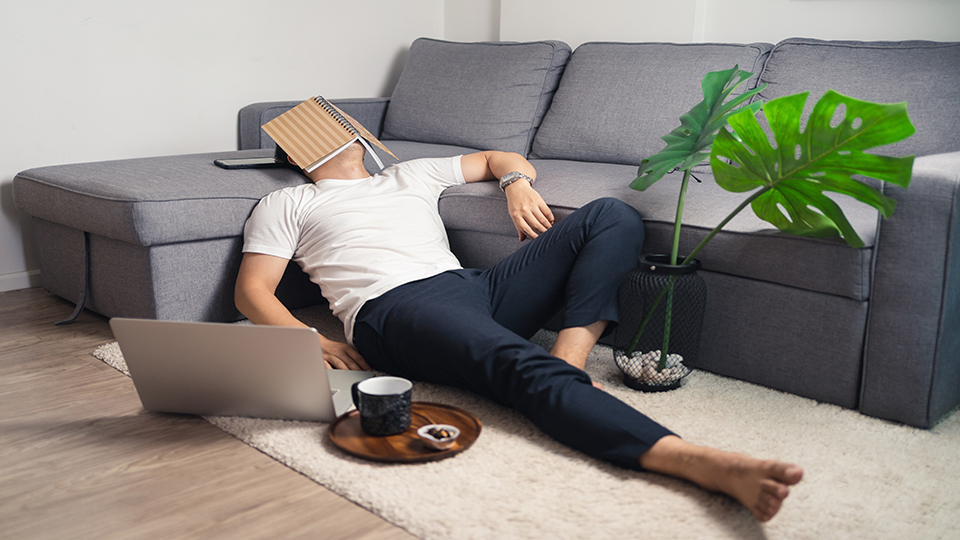Take a 30-minute afternoon nap for a mid-day refresh and memory boost
Published: 23 Feb 2023

Young Asian man taking a nap and laying on floor. Copyright: skazz
Is there a recommended duration for a mid-afternoon nap that achieves a balance between practicability and meaningful benefits?
This question was addressed in a study led by Dr Ruth Leong and Prof Michael Chee of the Centre for Sleep and Cognition at NUS Medicine, and published in leading journal SLEEP. Following their usual amount of sleep at night, 32 young adults underwent four experimental conditions: wake, a 10-minute nap, a 30-minute nap, and a 60-minute nap on separate days.
The researchers compared sleep time measured objectively with polysomnography rather than just the amount of time provisioned for the nap. This allowed for unambiguous decision-making about how long one should allocate for a nap, taking into account the average time taken to fall asleep.
Mood, subjective sleepiness, cognitive performance were measured at intervals of five minutes, 30 minutes, 60 minutes and 240 minutes after waking from the mid-afternoon naps in order to compare how sustained the respective nap benefits were. The effect of these nap lengths on memory encoding was also examined.
On average, participants took 10 to 15 minutes to fall asleep. Compared to wake, all nap durations ranging from 10 to 60 minutes had clear benefits for positive mood, subjective sleepiness, and alertness that lasted up to 240 minutes post-nap, suggesting that even a short 10-minute snooze can act as a midday refresh. However, of the nap durations, only the 30-minutes nap had benefits for memory encoding, indicating that minimally, 30 minutes may be needed for benefits to memory.
Improvements for vigilance were moderate, and benefits for speed of processing were not seen. Sleep inertia, the grogginess just after waking that can manifest as temporary decrements in performance, was only observed for the 30 to 60 minutes naps. Even so, decrements were minimal and were resolved within 30 minutes of waking.
While no clear ‘winning’ nap duration was found, a 30-minute nap appears to have the best trade-off between practicability and benefit. 30 minutes may be the duration to recommend for a mid-afternoon nap, while provisioning an additional ~10 minutes to fall asleep.
“Many know the benefits of napping, but the pressure to optimise time in the workday poses constraints for some on the practicality of napping regularly,” explained Dr Ruth Leong, Research Fellow from the Centre for Sleep and Cognition at the Yong Loo Lin School of Medicine, National University of Singapore (NUS Medicine), when outlining the motivation for the study.
Click here to read the press release.

